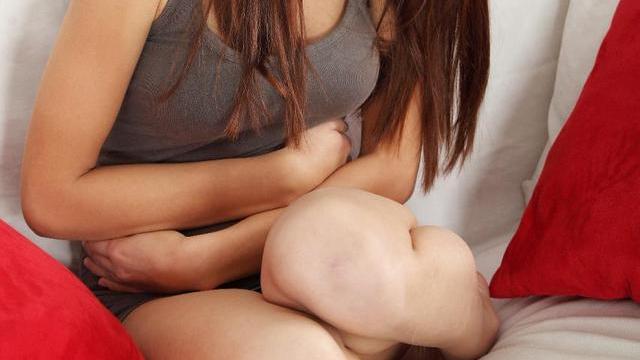Never heard of diverticulitis? It’s more common than you might think, and medical experts believe part of the reason is that our diets are too low in fiber -- a familiar refrain for many Americans.
Diverticulitis starts with a condition called diverticulosis, which many people have, without necessarily feeling any symptoms. Small pouches called diverticula bulge out through weak spots in the colon. About 10 percent of Americans older than 40 have diverticulosis, with the number growing to about 50 percent for people older than 60, according to the National Digestive Diseases Information Clearinghouse (NDDIC).
When the diverticula, or pouches, became inflamed or infected, however, that’s diverticulitis, suffered by 10 to 25 percent of those who show diverticulosis, said the NDDIC.
Diverticular disease is common in industrialized countries like the United States, yet rare in certain parts of Asia and Africa, where high-fiber diets with lots of fruits and vegetables are the norm, according to the online Health Encyclopedia of Loma Linda University Medical Center.
So diverticulitis prevention starts with a diet rich in fiber, with everything from beans to broccoli to potatoes to apples to oatmeal and whole-grain bread -- until you reach your recommended 20 to 35 grams daily. It all boils down to keeping regular bowel habits. Constipation leads to straining, which leads to bulges through the colon.
If you do receive a diverticulitis diagnosis, however, it is probably because your health care practitioner picked up on this common symptom -- abdominal pain and tenderness around the left side of the lower abdomen. Diagnostic tools include testing a stool sample, a digital rectal exam, abdominal ultrasound and colonoscopy.
Doctors believe a possible cause for infection and inflammation are particles of stool or bacteria becoming caught in the diverticula. When infection is present, there may be fever, nausea, vomiting, chills, cramping and constipation, said the Loma Linda site.
Diverticulitis treatment might involve medications to control pain, to fight infection and inflammation or to control muscle spasms. Your doctor might advise resting the colon with a liquid diet and bed rest. In any case, you want to prevent and minimize complications from diverticulitis, such as perforations in the colon, blockages, abscesses, peritonitis and bleeding.
In some cases, the NDDIC explained, your doctor might advise diverticulitis surgery, which involves removing the affected part of the colon and joining the remaining sections in what’s called a colon resection. In even more serious cases, you might need two surgeries: one to remove the affected portion of the colon and give you a temporary colostomy, and another surgery several months later to rejoin the ends of the colon.
Before diverticulosis turns into diverticulitis, do the smart thing and increase your fiber intake, even if it means a fiber supplement in pill or powder form. As for long-time concerns about eating foods with seeds -- fearing the seeds could irritate the diverticula -- the NDDIC said that eliminating such foods is not necessary.
Foods like strawberries, poppy seeds, tomatoes, nuts, popcorn and sunflower seeds are usually harmless.
The diet for diverticulitis, if it’s diagnosed, might call for a gradual reintroduction of high-fiber foods.
Sources:
“Diverticulosis and Diverticulitis.” National Digestive Diseases Information Clearinghouse. Web. 7 Nov. 2011. http://digestive.niddk.nih.gov/ddiseases/pubs/diverticulosis/index.aspx
“Diverticular Disease.” Loma Linda University Medical Center Health Encyclopedia. Web. 7 Nov. 2011. http://healthlibrary.lomalindahealth.org/Library/Encyclopedia/85,P00367
Reviewed November 10, 2011
by Michele Blacksberg RN
Edited by Jody Smith






Add a CommentComments
There are no comments yet. Be the first one and get the conversation started!